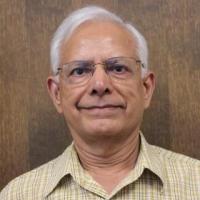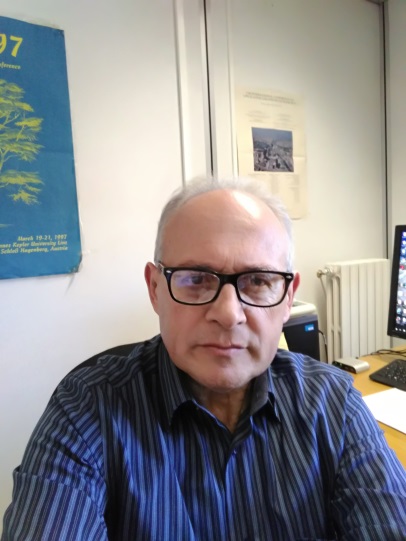IEEE/ACM DS-RT 2019
Tutorials
|
The 23rd IEEE/ACM DS-RT Symposium includes the following two tutorials: Title: Reliability and Availability Assessment in Practice Abstract: High reliability and availability is a requirement for most technical systems. Reliability and availability assurance methods based on probabilistic models is the topic addressed in this talk. Non-state-space solution methods are often used to solve models based on reliability block diagrams, fault trees and reliability graphs. Relatively efficient algorithms are known to handle systems with hundreds of components and have been implemented in many software packages. Nevertheless, many practical problems cannot be handled by such algorithms. Bounding algorithms are then used in such cases as was done for a major subsystem of Boeing 787. Non-state-space methods derive their efficiency from the independence assumption that is often violated in practice. State space methods based on Markov chains, stochastic Petri nets, semi-Markov and Markov regenerative processes can be used to model various kinds of dependencies among system components. However, the resulting state space explosion severely restricts the size of the problem that can be solved. Hierarchical and fixed-point iterative methods provide a scalable alternative that combines the strengths of state space and non-state-space methods and have been extensively used to solve real-life problems. We will take a journey through these model types via interesting real-world examples chosen from IBM, Cisco, Sun Microsystems, and Boeing. These methods and applications are fully described in a recently completed book: Reliability and Availability Engineering: Modeling, Analysis and Applications, Cambridge University Press, 2017. Speaker: Prof. Kishor S. Trivedi, Duke University, North Carolina, USA
Title: Model-driven development of cyber-physical systems using Theatre Abstract: Theatre is a control-based, light-weight, reflective actor system designed to address the development of general distributed, timed (possibly probabilistic) systems and cyber-physical systems in particular. Theatre is characterized by its formal operational semantics. An abstract Theatre model, including the services of a possible deterministic network and associated protocol, can be analyzed by exhaustive model-checking or by statistical model checking or through ad-hoc simulators. Theatre is currently implemented in Java. Other languages are possible. A key point of Theatre is its volition to favoring a seamless transformation of an analyzed model into the terms of design and implementation phases. The tutorial will illustrate the modelling aspects of Theatre, its supporting analysis tools, its capability of combining discrete-time with continuous time, its maturity as a software engineering methodology, and some developed applications. Speaker: Prof. Libero Nigro, DIMES, University of Calabria, Italy
Title: The Infinity Computer for Optimization and Not Only Abstract:
In this lecture, a recent computational methodology is described. It has been introduced with the intention to allow one to work with infinities and infinitesimals numerically in a unique computational framework. It is based on the principle ‘The part is less than the whole’ applied to all quantities (finite, infinite, and infinitesimal) and to all sets and processes (finite and infinite). The methodology uses as a computational device the Infinity Computer (patented in USA and EU) working numerically with infinite and infinitesimal numbers that can be written in a positional system with an infinite radix. On a number of examples (numerical differentiation, divergent series, ordinary differential equations, fractals, set theory, etc.) it is shown that the new approach can be useful from both theoretical and computational points of view. The main attention is dedicated to applications in optimization (local, global, and multi-objective). The accuracy of the obtained results is continuously compared with results obtained by traditional tools used to work with mathematical objects involving infinity. The Infinity Calculator working with infinities and infinitesimals numerically is shown during the lecture. For more information see http://www.theinfinitycomputer.com and this survey: Sergeyev Ya.D. Numerical infinities and infinitesimals: Methodology, applications, and repercussions on two Hilbert problems, EMS Surveys in Mathematical Sciences, 2017, 4(2), 219–320. Speaker: Prof. Yaroslav D. Sergeyev, University of Calabria, Italy / Lobachevsky State University, Russia
|

 Kishor Trivedi holds the Fitzgerald Hudson Chair in the Department of Electrical and Computer Engineering at Duke University, Durham, NC. He has a 1968 B.Tech. (EE) from IIT Mumbai and MS’72/PhD’74 (CS) from the University of Illinois at Urbana-Champaign. He has been on the Duke faculty since 1975. He is the author of a well-known text entitled, Probability and Statistics with Reliability, Queuing and Computer Science Applications, originally published by Prentice-Hall; a thoroughly revised second edition of this book has been published by John Wiley. The book is recently translated into Chinese. He has also published two other books entitled, Performance and Reliability Analysis of Computer Systems, published by Kluwer Academic Publishers and Queueing Networks and Markov Chains, John Wiley. His latest book, Reliability and Availability Engineering is published by Cambridge University Press in 2017. He is a Life Fellow of the Institute of Electrical and Electronics Engineers and a Golden Core Member of IEEE Computer Society. He has published over 600 articles and has supervised 48 Ph.D. dissertations. He is the recipient of IEEE Computer Society’s Technical Achievement Award for his research on Software Aging and Rejuvenation. His research interests are in reliability, availability, performance and survivability of computer and communication systems and in software dependability. His h-index is 99. He has worked closely with industry in carrying our reliability/availability analysis, providing short courses on reliability, availability, and in the development and dissemination of software packages such as HARP, SHARPE, SREPT and SPNP.
Kishor Trivedi holds the Fitzgerald Hudson Chair in the Department of Electrical and Computer Engineering at Duke University, Durham, NC. He has a 1968 B.Tech. (EE) from IIT Mumbai and MS’72/PhD’74 (CS) from the University of Illinois at Urbana-Champaign. He has been on the Duke faculty since 1975. He is the author of a well-known text entitled, Probability and Statistics with Reliability, Queuing and Computer Science Applications, originally published by Prentice-Hall; a thoroughly revised second edition of this book has been published by John Wiley. The book is recently translated into Chinese. He has also published two other books entitled, Performance and Reliability Analysis of Computer Systems, published by Kluwer Academic Publishers and Queueing Networks and Markov Chains, John Wiley. His latest book, Reliability and Availability Engineering is published by Cambridge University Press in 2017. He is a Life Fellow of the Institute of Electrical and Electronics Engineers and a Golden Core Member of IEEE Computer Society. He has published over 600 articles and has supervised 48 Ph.D. dissertations. He is the recipient of IEEE Computer Society’s Technical Achievement Award for his research on Software Aging and Rejuvenation. His research interests are in reliability, availability, performance and survivability of computer and communication systems and in software dependability. His h-index is 99. He has worked closely with industry in carrying our reliability/availability analysis, providing short courses on reliability, availability, and in the development and dissemination of software packages such as HARP, SHARPE, SREPT and SPNP.
 Libero Nigro is a full professor of Computer Engineering in the Department of Informatics, Modelling, Electronics and Systems Science (DIMES) of University of Calabria, 87036 Rende (CS) Italy. He currently teaches Object Oriented Programming and Systems Programming (covering modelling, simulation, real-time and multi-agent systems) courses. He heads the Software Engineering Laboratory at DIMES (www.lis.dimes.unical.it) whose main goal is formal modelling by Petri nets, DEVS, actors, statecharts, timed automata etc., and tool development for analysis, e.g. by distributed/parallel simulation, or by exhaustive model checking, and concrete implementation of complex timed systems. Libero was the tutor of several PhD students at DIMES. He is currently an editor of Simulation Modelling Practice and Theory (SIMPAT) and Int. J. of Simulation and Process Modelling (IJSPM). In addition, from years, he is serving in the program committee of well-known int. conferences and symposia on modelling, simulation and real time applications, and as a referee of journals including Science of Computer Programming, J. of Systems and Software, SIMPAT, Simulation Trans. of SCS, J. of Cellular Automata, Discrete Event Dynamic Systems etc.
Libero Nigro is a full professor of Computer Engineering in the Department of Informatics, Modelling, Electronics and Systems Science (DIMES) of University of Calabria, 87036 Rende (CS) Italy. He currently teaches Object Oriented Programming and Systems Programming (covering modelling, simulation, real-time and multi-agent systems) courses. He heads the Software Engineering Laboratory at DIMES (www.lis.dimes.unical.it) whose main goal is formal modelling by Petri nets, DEVS, actors, statecharts, timed automata etc., and tool development for analysis, e.g. by distributed/parallel simulation, or by exhaustive model checking, and concrete implementation of complex timed systems. Libero was the tutor of several PhD students at DIMES. He is currently an editor of Simulation Modelling Practice and Theory (SIMPAT) and Int. J. of Simulation and Process Modelling (IJSPM). In addition, from years, he is serving in the program committee of well-known int. conferences and symposia on modelling, simulation and real time applications, and as a referee of journals including Science of Computer Programming, J. of Systems and Software, SIMPAT, Simulation Trans. of SCS, J. of Cellular Automata, Discrete Event Dynamic Systems etc.
 Yaroslav D. Sergeyev, Ph.D., D.Sc., D.H.C. is Distinguished Professor at the University of Calabria, Italy (chiamata diretta per “chiara fama”) and Head of Numerical Calculus Laboratory at the same university. His research interests include numerical analysis, global optimization (since 2017 he is President of the International Society of Global Optimization), infinity computing and calculus, philosophy of computations, set theory, number theory, fractals, parallel computing, and interval analysis. Prof. Sergeyev was awarded several research prizes (Khwarizmi International Award, 2017; Pythagoras International Prize in Mathematics, Italy, 2010; EUROPT Fellow, 2016; Outstanding Achievement Award from the 2015 World Congress in Computer Science, Computer Engineering, and Applied Computing, USA; Honorary Fellowship, the highest distinction of the European Society of Computational Methods in Sciences, Engineering and Technology, 2015; The 2015 Journal of Global Optimization (Springer) Best Paper Award; Lagrange Lecture, Turin University, Italy, 2010; MAIK Prize for the best scientific monograph published in Russian, Moscow, 2008, etc.).
Yaroslav D. Sergeyev, Ph.D., D.Sc., D.H.C. is Distinguished Professor at the University of Calabria, Italy (chiamata diretta per “chiara fama”) and Head of Numerical Calculus Laboratory at the same university. His research interests include numerical analysis, global optimization (since 2017 he is President of the International Society of Global Optimization), infinity computing and calculus, philosophy of computations, set theory, number theory, fractals, parallel computing, and interval analysis. Prof. Sergeyev was awarded several research prizes (Khwarizmi International Award, 2017; Pythagoras International Prize in Mathematics, Italy, 2010; EUROPT Fellow, 2016; Outstanding Achievement Award from the 2015 World Congress in Computer Science, Computer Engineering, and Applied Computing, USA; Honorary Fellowship, the highest distinction of the European Society of Computational Methods in Sciences, Engineering and Technology, 2015; The 2015 Journal of Global Optimization (Springer) Best Paper Award; Lagrange Lecture, Turin University, Italy, 2010; MAIK Prize for the best scientific monograph published in Russian, Moscow, 2008, etc.).